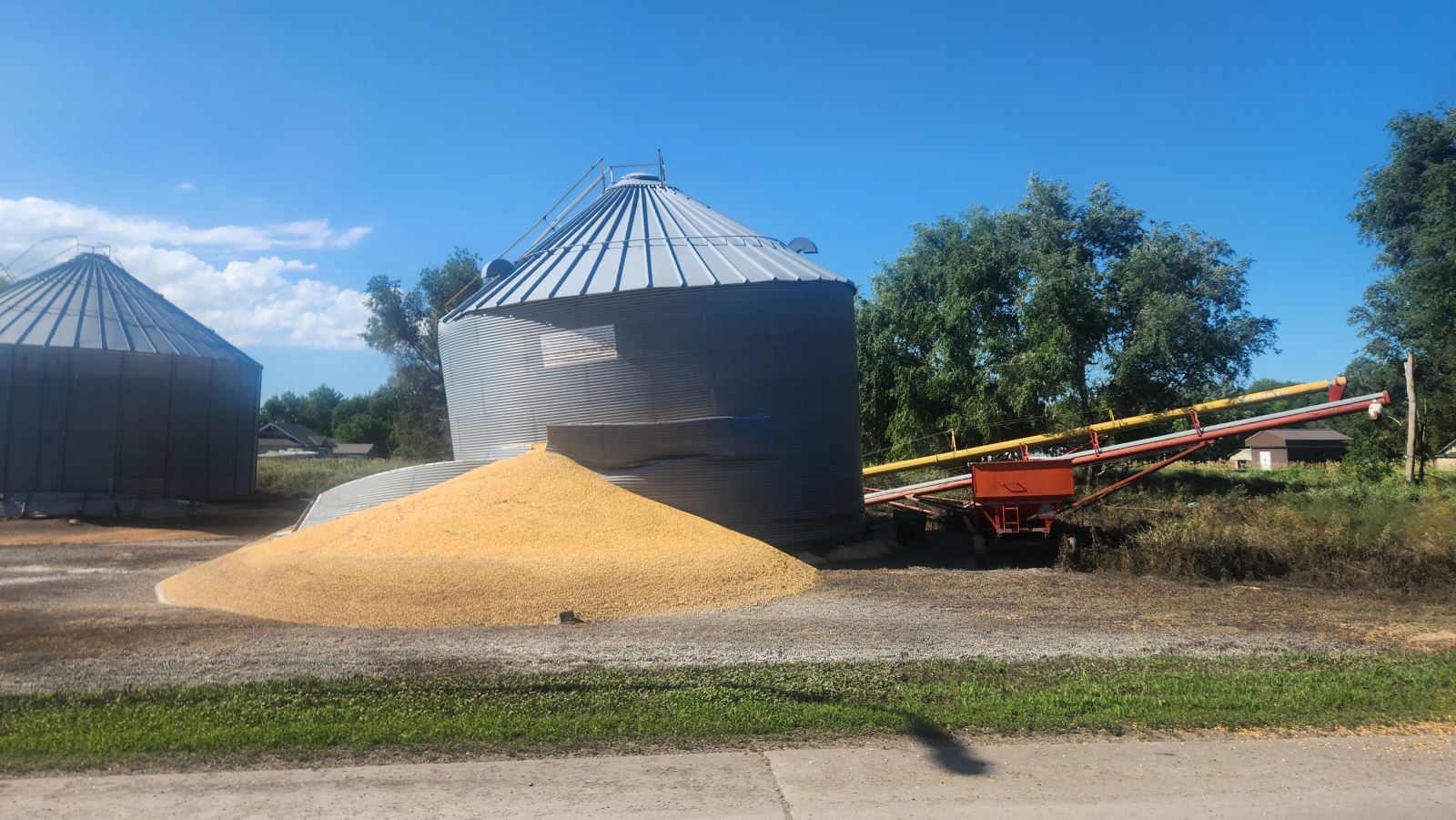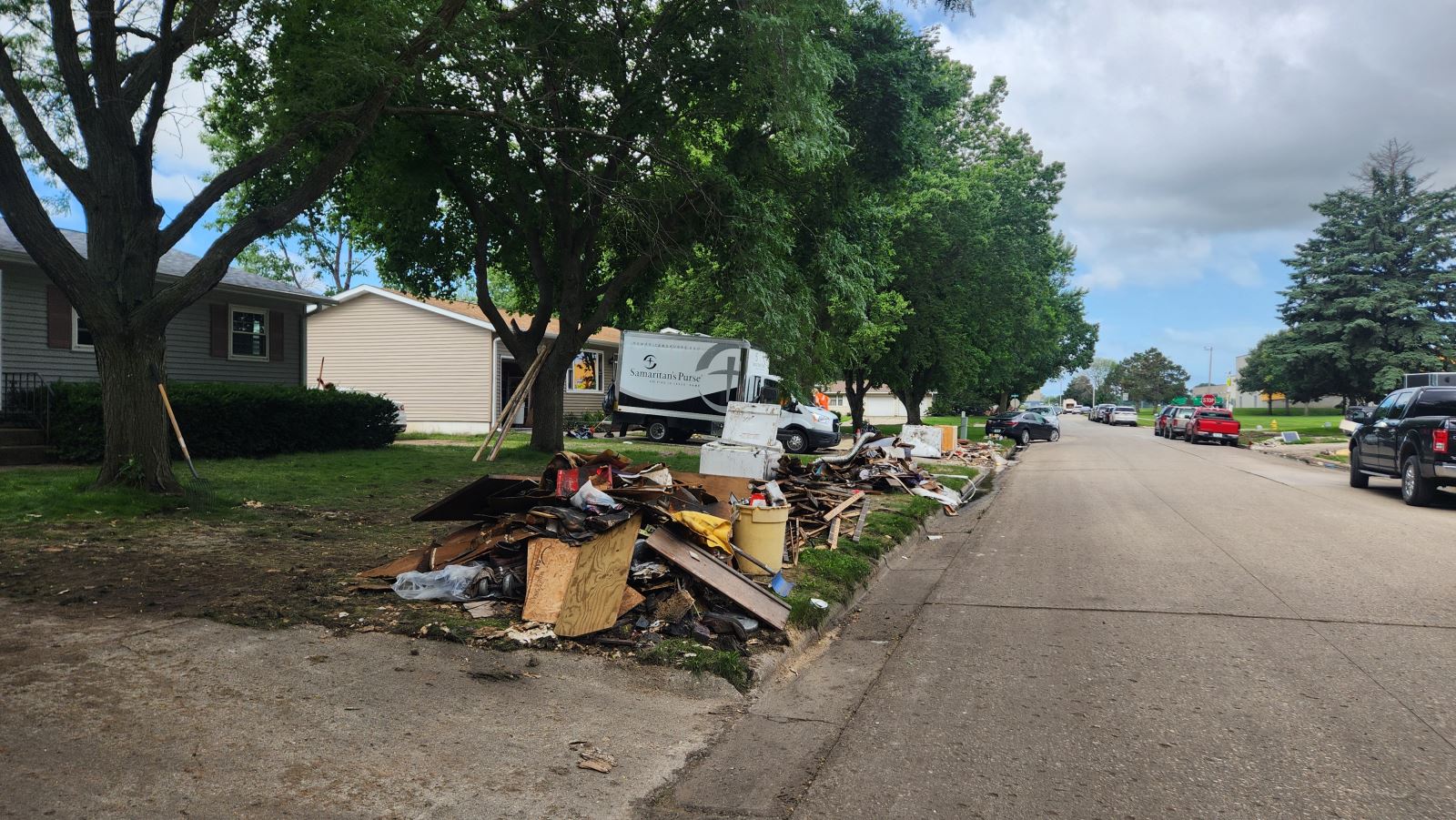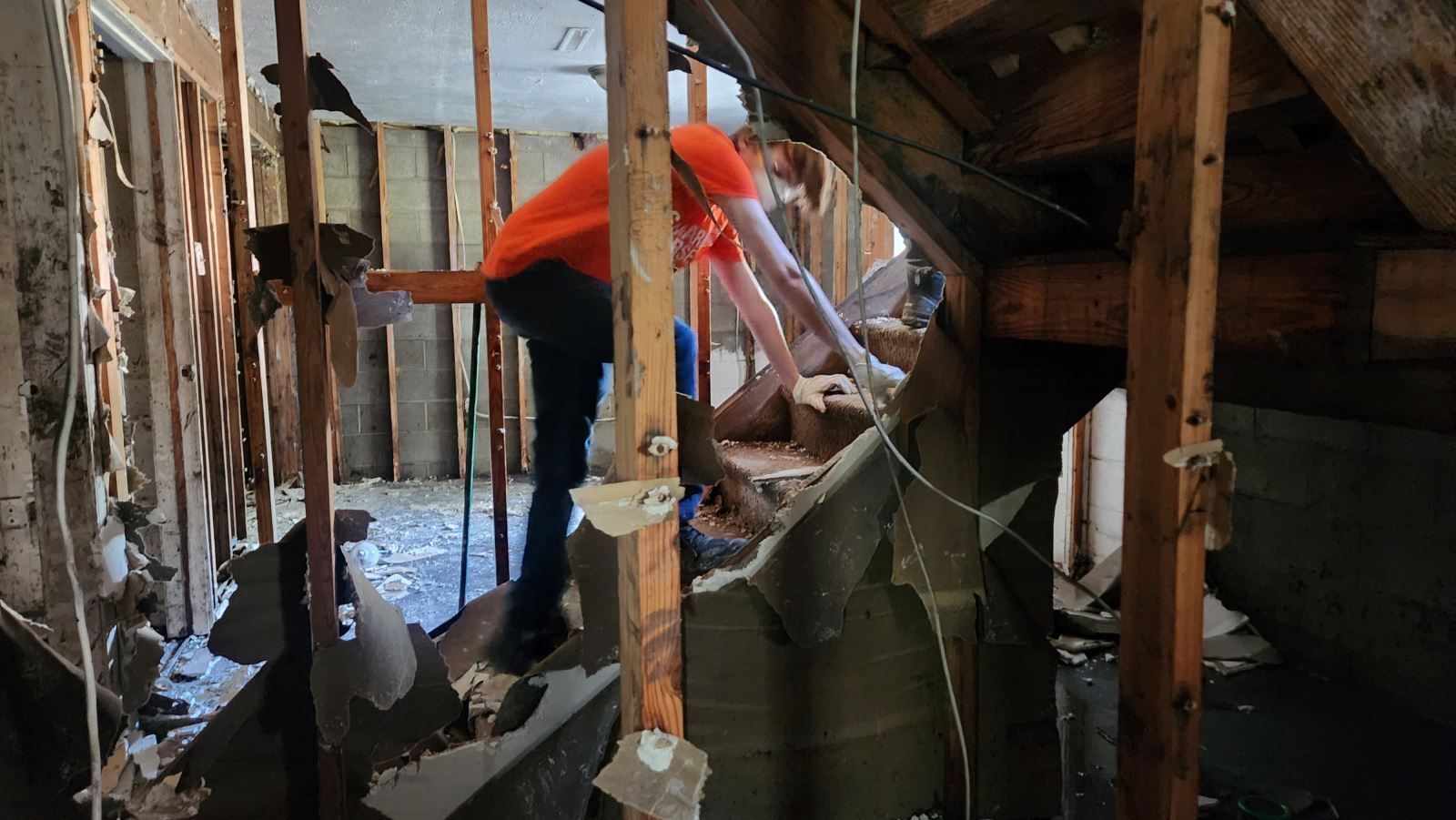Drought to Deluge: The 2024 Floods of Northwest Iowa, and Adaptations to Come
posted
by Guest Blogger on Friday, August 2, 2024
"Drought to Deluge" was written by Nick Blocha as a first-hand reflection of catastrophic flooding in northwest Iowa this summer. Blocha integrates personal accounts of his time in hands-on relief efforts, direct contact with some of those affected, as well as facts and relevant metrics looking at the causes of floods. Blocha is currently serving with AmeriCorps at the Iowa Lakeside Labs on West Okoboji.
Travelling west on the road towards Hawarden, we passed a broken railroad. The gravel beneath it had been washed away, leaving the steel rails and ties twisted and suspended over the open air. The flooding from the Big Sioux River was still high in the surrounding fields of early growing corn. By looking at the line of brown and dead stalks, we could tell where the water had been just four days before from the relentless barrage of rainfall. A work train sat on the tracks not far off, and new wooden ties, soaked in black oil, were off to the side waiting until they could be replaced.
.png)
We met up with Sunday, our contact for the members of the Sioux County Conservation Board, at the Prairie Woods Nature Center. The camping lot was filled with R.V.s, from those lucky enough to have them, taking refuge there where the water hadn’t reached. Despite everything they’d been through, Sunday had a cheery smile. She was elated to see us, glad for the help. Sunday introduced us to Myron, the fellow who we would be working with that day. He led us over to the site, the Big Sioux Recreation Area, right on the Big Sioux River before the border to South Dakota. We drove through Hawarden, not ten minutes away from the nature center where the people of the town had their waterlogged belongings piled on the side of the road in their front yards, nothing more now than husks still reeking with sewage and the ghosts of their lives. The power and water services remained shut off to most in Hawarden, and many of the surrounding towns.
Just before we reached the recreation area, we passed seven grain silos that sat busted open, the pale, golden seeds spilled over the ground. The pink Sioux quartzite road was broken and busted from debris brought in by the irregularly high-water levels. Here, it rose nearly 5” higher than any of the previous recorded floods had reaching multiple feet into the first floor of homes. The bed of a rusted, blue pickup lay upside-down, abandoned, in the ditch on the side of that broken road. The grass of the park itself was stained in dark mud. The ground was soft and squelched underfoot. Big Sioux still covered the road and bridge over to South Dakota, and part of the park.

Myron showed us the registration office and bathrooms. The walls were dark with water damage a foot above the floor, where the water had stood for days. A thick ooze of sloppy mud covered the ground tile. The parts near the doors which had been exposed to the heat of the summer sun were flakey and pale, which cracked as the rest folded into the wide, tin shovels like a soiled blanket being shoved aside, or toxic fudge. The wet stuff took a little more time to scoop out, switching between the shovels, dust pans, and long poled squeegees. Us five interns and AmeriCorps members who volunteered to go that day, scooped the first layer of muck and cleared some of the surrounding debris. Slogging through the park between the buildings, I was stopped by a bombardment of high-pitched tweeting. A yellow warbler fluttered desperately, its stomach bright like a flare against the dark green leaves of the Ash tree above me.
“You’ve got one on your boot,” Jordan said.
I looked down. “A fledgling.”


The ragged child with a head of feathers like a crazy, balding, old scientist was perched on the top of my left, rubber boot. It gazed up at me, mouth agape, as if expecting to be fed, or in some brave attempt to shoo me off. The parent seemed to learn I was of no threat to the child, and the shrill cries died down. The fledgling hopped off my boot and waddled closer to the tree. We stopped and watched the young and its mother for a while, recognizing the beautiful grace of the baby’s clumsiness. They too were refugees in their own home, though much less affected than the humans were by all that had occurred with the massive rains of Iowa this June.
About the Author
 Nick Blocha is an artist, writer, and conservationist currently serving an environmental stewardship position with AmeriCorps at the Iowa Lakeside Labs on West Okoboji. Blocha has previously worked in entertainment for ten years as a screen and script writer, an actor, as well as serving production and crew positions before delving into the environmental field. His most recent research project was on the 2024 floods of Northwest Iowa, and is continuing his research efforts around the West Okoboji Waterfowl.
Nick Blocha is an artist, writer, and conservationist currently serving an environmental stewardship position with AmeriCorps at the Iowa Lakeside Labs on West Okoboji. Blocha has previously worked in entertainment for ten years as a screen and script writer, an actor, as well as serving production and crew positions before delving into the environmental field. His most recent research project was on the 2024 floods of Northwest Iowa, and is continuing his research efforts around the West Okoboji Waterfowl.